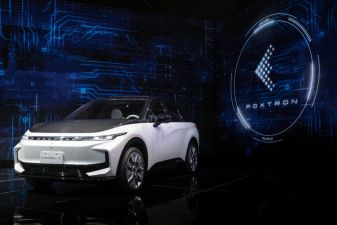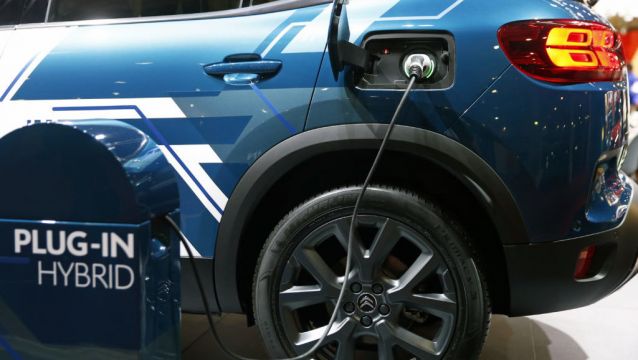The Government has removed the purchase incentive offered to buyers of plugin-hybrid electric vehicles (PHEVs).
From January 1st the grant of €2,500 will no longer exist, although plug-in hybrids due to be delivered in 2021 but delayed due to the global semi-conductor shortage, may avail of an extension to 31st March 2022.
The changes do not impact on other incentives such as the financial supports for home chargers or reduced toll charges.
So far this year, 7,452 new PHEVs have been registered, making up 7.4 per cent of the new car market. That’s significantly up on last year when PHEVs made up just 2.8 per cent of new car sales.
Anger
Unsurprisingly, the car trade in Ireland has reacted with anger at this sudden removal of the grant. Brian Cooke, director general of the Society of the Irish Motor Industry (Simi) said: “This is a terrible decision, which is anti-consumer and anti-environment, only adding to the cost for the customer making a better environmental decision.
“PHEVs are an important stepping stone to going fully electric, particularly in parts of rural Ireland where this is a lack of charging infrastructure. For the first quarter of next year PHEVs have been ordered well in advance of the Budget.
“The Government’s Climate Action Plan hopes to have 94,000 PHEVs on our roads by 2025 and 290,000 by 2030. The removal of these incentives undermines this plan and runs counter to the aim of reducing emissions. While we accept supports cannot be in place forever, it is way too early to remove this grant. It is particularly unfair to consumers and the Industry who have ordered cars for 2022 in expectation of this support continuing.”
Simi seems especially exercised that the move has come without warning, having not been announced in last week’s Budget, at that it does not include the four-month grace period previously allowed buyers when the rebate was reduced in July of this year, from €5,000 to €2,500.
According to Cooke: “The lack of understanding of both the motor vehicle supply chain and customer behaviour in ordering vehicles for the start of the following year will lead to huge financial and logistical problems for manufacturers, retailers and customers, as we emerge from a year that completely destabilised the industry with Covid-19 and Brexit.”
Hyundai Ireland managing director Stephen Gleeson said the move will drive up emissions as PHEVs are replaced with lower priced regular hybrids. “this morning we have cancelled orders for 500 PHEVs from the factory and replaced them with a mix of regular hybrids and diesels. Both engine types have higher emissions than the PHEVs, but without the grant there will be a ¤4,500 price difference between a regular hybrid and a plug-in.” He said that would drive consumers to more polluting models.
“There is a complete lack of joined-up thinking when it comes to emissions policy in this country,” he said, accusing the Minister for Transports Eamon Ryan of “categorically driving up emissions” as PHEVs will be replaced by more polluting hybrid and regular combustion models.
Range anxiety
Announcing the changes, the Minister said: “It is important that we continue to support consumers in making the switch to electric vehicles, and I am pleased to confirm a significant increase in supports for fully Electric Vehicles in 2022, and the supporting recharging infrastructure.
“The arrival of long range, fully electric, vehicles on the market means that range anxiety can become a thing of the past, “ said Mr Ryan. “A single charge on one of these will cover well over 400km range. While Plug-in Hybrids, provided a part-electric solution for motorists who took longer journeys or were concerned about EV range, they were a compromise in terms of both emissions and air quality.
“Now that range anxiety has been addressed by manufacturers, we will focus our exchequer resources on fully electric vehicles.”
Premature
AA Ireland described the Government’s announcement as premature. “We feel that the announcement of the cessation of PHEV grants in January, which will be just six months after they were halved from ¤5,000 to ¤2,500 is premature and will not encourage the move away from petrol or diesel cars,” said AA Ireland head of communications, Paddy Comyn.
“PHEVs are a stepping stone for many people away from petrol and diesel cars and for some people, a Battery Electric Vehicle doesn’t quite yet meet their needs and a PHEV would have given many motorists the natural progression to move into a BEV. We acknowledge that the grant money will be used to increase the penetration of electric vehicles, but AA Ireland feels that this should have been at least extended to the end of June 2022, to allow motorists who were undecided to order a new car for next year and still take into account any delays due to the global shortage of semiconductors.”

One group that will welcome the removal of grants for PHEVs will be environmental think-tank Transport & Environment (T&E).
It has long held that plug-in hybrids were effectively “fake electric cars” and are being used cynically by carmakers to bring down average emissions figures (thereby avoiding EU fines), without ensuring that the customer actually plugs the car in regularly.
“Analysis of databases of real world emissions of PHEVs by T&E shows rather than emitting on average 44g of CO2 per kilometre, as measured using a flawed laboratory test, most PHEV are actually emitting over two and a half times this level of CO2 emissions when driven on the road,” said a Transport & Environment report.
“Over the lifetime of the vehicle a new PHEV in 2020 will emits about 28 tonnes of CO2, slightly less than a conventional hybrid car (33 tonnes). In comparison, a petrol or diesel car emits 39 tonnes or 41 tonnes, respectively. A new battery electric car will emit about 3.8 tonnes from the electricity it uses.”







